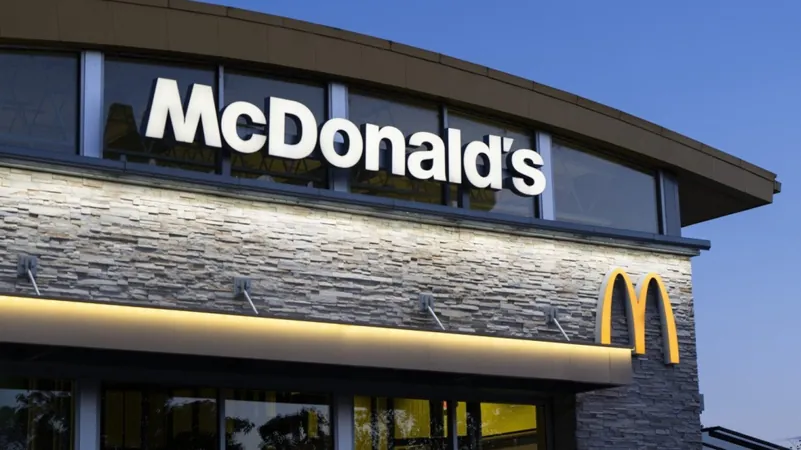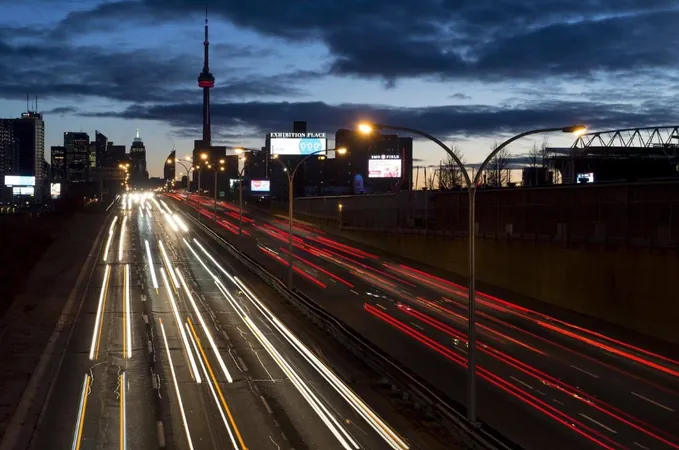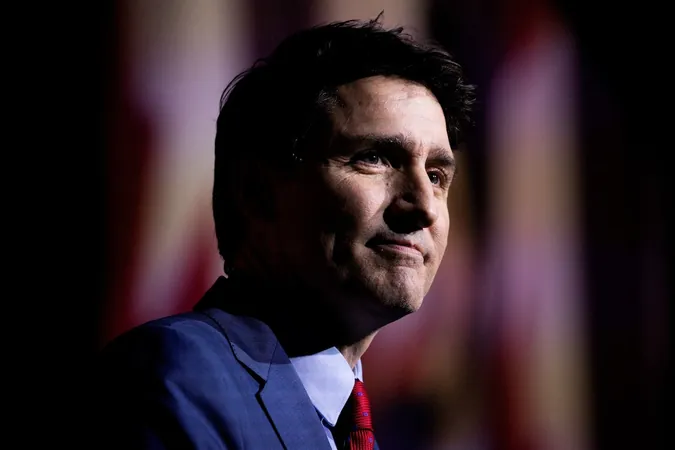
McDonald's Reverses Course on Diversity Initiatives Following Supreme Court Ruling
2025-01-08
Author: Liam
Introduction
In a surprising twist, McDonald's has decided to roll back some of its diversity initiatives, just four years after launching a robust campaign aimed at increasing representation within its workforce. This decision comes in the wake of a pivotal U.S. Supreme Court ruling that abolished affirmative action in college admissions, leading many corporations to reconsider their diversity, equity, and inclusion (DEI) strategies.
Corporate Shift in DEI Strategies
Following the 2023 ruling, McDonald’s joins a growing list of corporations, including Walmart, John Deere, and Harley-Davidson, that have dialed back their DEI programs. As part of this strategic shift, the fast-food giant announced it will phase out specific diversity targets for senior leadership roles and discontinue a program designed to encourage suppliers to enhance diversity training and elevate minorities to leadership positions.
Impact on Inclusion Efforts
Moreover, McDonald's plans to pause “external surveys” related to workplace inclusion, a move echoed by other companies like Lowe's and Ford that have also suspended their participation in the Human Rights Campaign's annual survey assessing LGBTQ+ employee inclusion.
Background of Diversity Initiatives
The origins of McDonald's diversity initiatives date back to 2021, in response to serious allegations including sexual harassment lawsuits and a discrimination suit filed by Black former owners of McDonald's franchises. At that time, CEO Chris Kempczinski emphasized the importance of inclusion as a core value for the brand, pledging to promote measurable progress across all levels of the organization.
Recent Developments and Company Goals
However, the recent legal and corporate landscape has prompted McDonald’s to reassess its commitments. In an open letter to its employees and franchisees, McDonald's leadership asserted their ongoing dedication to fostering an inclusive environment, emphasizing that diversity remains a competitive benefit. Currently, 30% of McDonald’s U.S. leaders come from underrepresented groups, a slight increase from 29% in 2021, even as the company aimed for 35% by year-end.
Positive Aspects and Future Plans
On a positive note, the company announced it had achieved gender pay equity across all levels and is on track to allot 25% of total supplier spending to diverse-owned businesses by the end of the year. Although the diversity team will now rebrand as the Global Inclusion Team, McDonald's has vowed to continue its support for diverse hiring and supplier partnerships, as well as maintain transparency through demographic reporting.
Conclusion
As McDonald's navigates these changes, industry experts and advocates are watching closely to see how this aligns with broader trends in corporate America regarding diversity and inclusion in the wake of recent judicial actions. Will McDonald's commitment to inclusion withstand this significant pivot, or will it fade into the corporate restructuring landscape? Only time will tell.









 Brasil (PT)
Brasil (PT)
 Canada (EN)
Canada (EN)
 Chile (ES)
Chile (ES)
 España (ES)
España (ES)
 France (FR)
France (FR)
 Hong Kong (EN)
Hong Kong (EN)
 Italia (IT)
Italia (IT)
 日本 (JA)
日本 (JA)
 Magyarország (HU)
Magyarország (HU)
 Norge (NO)
Norge (NO)
 Polska (PL)
Polska (PL)
 Schweiz (DE)
Schweiz (DE)
 Singapore (EN)
Singapore (EN)
 Sverige (SV)
Sverige (SV)
 Suomi (FI)
Suomi (FI)
 Türkiye (TR)
Türkiye (TR)